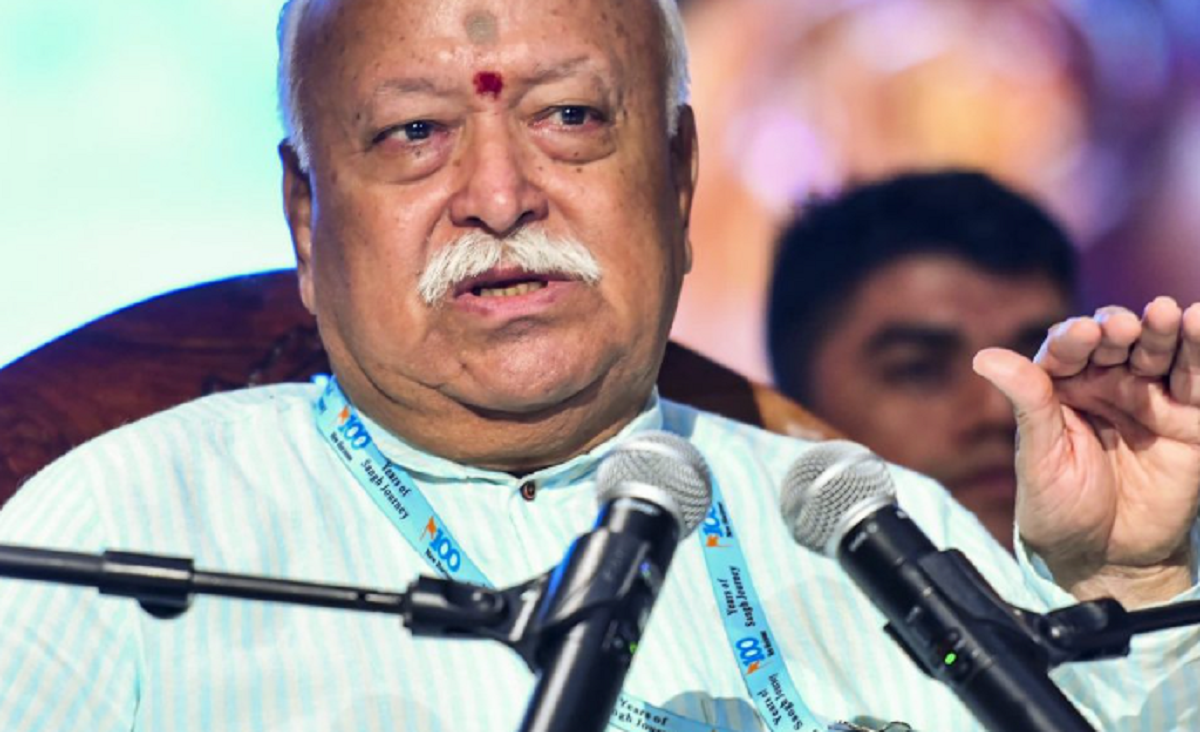'Good' Muslim, 'Bad' Muslim, So Also 'Good' Hindu, 'Bad' Hindu, Shri Bhagwat ji?
Badri Raina | 13 November 2025
A formula to defeat all 'bad' conspiracies to unravel Bharat.
In yet another peroration on the occasion of the centenary celebrations of the RSS, Shri Mohan Bhagwat, with characteristic balance and good sense, has cautioned us not to club all Muslims in one “bracket”.
He has underscored how only some Indian Muslims speak of “Ghazwa e Hind”, or practise “Love Jihad”.
Thus he admonishes us that we must distinguish between “good” and “bad” Muslims.
This caution must, conversely, also teach us to desist from thinking all Hindus to be of one mind on all things that concern us as Indians.
Here too, Hindu baiters must learn to distinguish the “bad” from the “good”.
For a start, only some Hindus hold that the Constitution of India is a faulty document and ought to be replaced by the Manusmriti. The bulk of Hindu society holds that it actually is an outstanding compendium that has succeeded in binding us together as rightful citizens who derive equally our prerogatives and obligations under a non-discriminatory rule of laws.
Likewise, only some Hindus think Bharat to be a monocultural social, religious, linguistic space, or wish it to be so constituted; most sensible Hindus feel proud of the layered diversities and beauties of our collective historical life and evolution, rejoicing in our multi-foliate bouquet of colours and competencies, and speak and work for the continuance of this unique tapestry that constitutes Bharat.
By far the majority of Hindus recognise the invaluable contributions made by Muslim Indians in countless aspects of our collective lives – in the world of skills, household industries, arts, architecture, spirituality, poetry, sports, national security.
Most Hindus – the vast majority of the “good” ones – have knowledge of the sacrifices made by Muslims in times of travail for the nation, counting from the freedom struggle against the colonising British, all the way to the many wars that Bharat has been obliged to engage in – 1947, 1962, 1965, 1971, 1999, etc., leaving us with an inspiring record of loyalty and sacrifice.
Most Hindus speak of their experience of conjoint celebrations of Hindu festivals in which Muslims have always shared joy and good tidings, just as “good” Muslims treasure memories of shared celebrations during Eid and the many Sufi events that take place throughout the year at Dargahs and Asthans, singing of human love and goodwill without distinctions of high and low, this denomination or that.
Most Hindus – all “good” ones – treasure memories of being sustained by Muslim neighbours during times of trouble, be it natural or man-made, often at great pain to themselves, just as most “good” Muslims treasure their memories of being shored up and sustained by “good” Hindus during their hours of suffering from one cause or another.
Most “good” Hindus have knowledge of the contributions made by “good” Muslims to Hindu folklore, to the celebration of Hindu deities and epics, to the archive of Hindi language and literature, just as most “good” Muslims revel in the contributions made by Hindus to enriching the archives of poetic and other forms of writing in Urdu.
Most of all, it is only some “bad” Hindus who still practice the bane of casteism, keeping the bulk of the community deprived of social, economic, cultural justice, even observing segregation in the areas of inter-dining and inter-marriage, whereas the vast majority of Hindus now acknowledge the oppressions and excesses committed by “bad” Hindus on other weaker ones through the centuries; just as most “good” Muslims now acknowledge how Muslim women have tended to be treated and dictated to as subservient members of their community.
The amplifications deriving from Shri Bhagwat’s most illuminating distinction indeed can be manifold, but enough may have been said here to supplement the strength of his discriminating thesis.
It may thus be said, let all “good” Hindus and “good” Muslims come boldly together to cement the conjoint contributions made by the two communities when the “bad” among both seem so determined to keep the nation on a dangerous razor’s edge.
And let the state and the government support and further all those conjoint efforts in order to secure a commonality under the authorising constitutional regime, so as to defeat all “bad” conspiracies on either side to unravel Bharat.
Badri Raina taught English at Delhi University.
This article was originally published on The Wire.
Views in this article are author’s own and do not necessarily reflect CGS policy.
